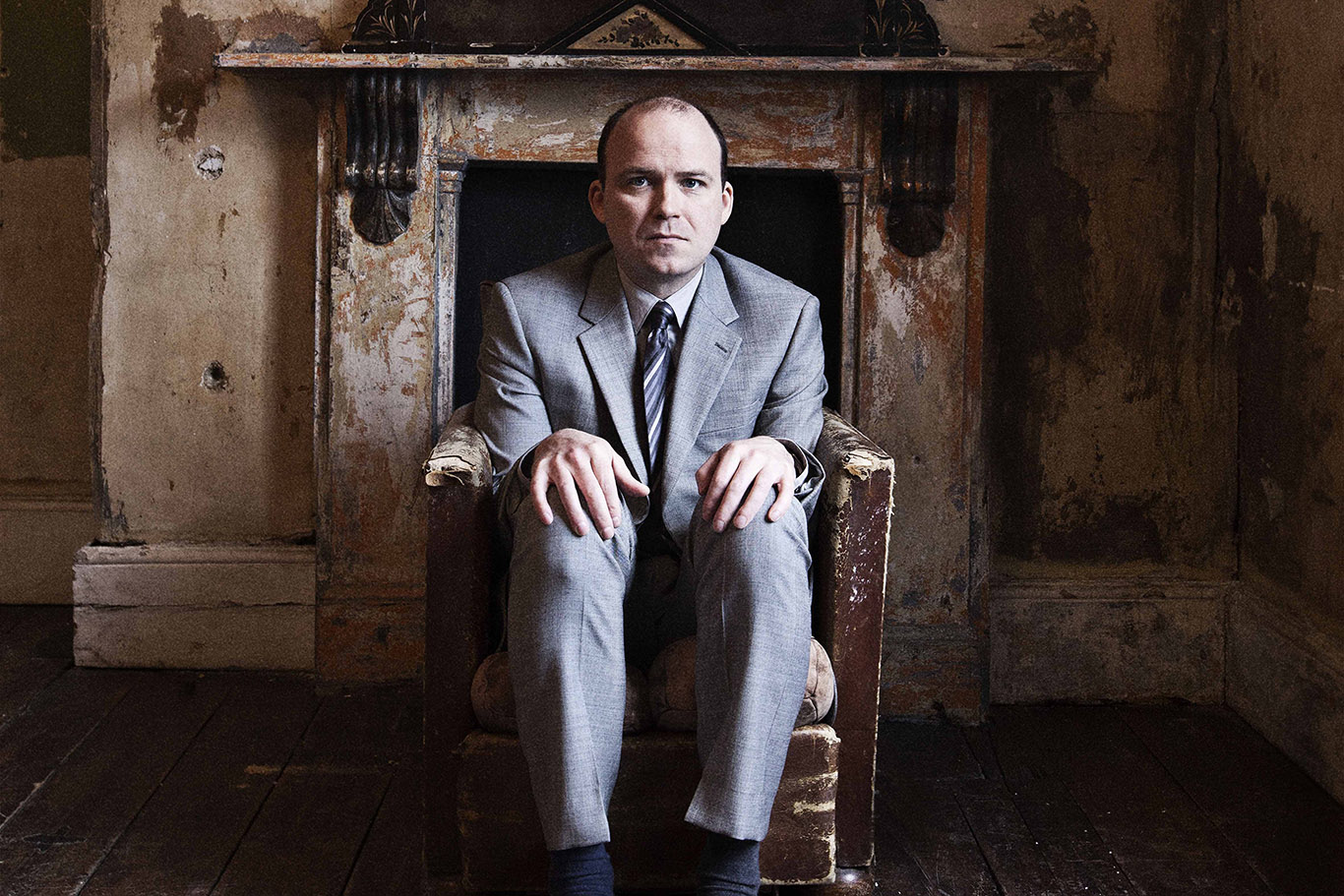Is it sexual plight or political repression? The Young Vic theatre in London has put Rory Kinnear on a conveyor belt to find out.
Kafka in English, “The Trial” in London? Can this be good? Rory Kinnear as Josef K. stumbles along a conveyor belt in the first scene before this question can even be thought to an end. For the next two hours there is no more time to think. 37 year old Kinnear never rests, his eyes, his hands, his legs are in constant movement, he is pushed along by a bureaucracy which wants only one thing: to finish him off.
The Young Vic’s new production in London deals with Kafka’s unfinished novel amazingly precisely. Adapted by Nick Gill and directed by Richard Jones the play unfolds with speed. Not one word, movement or pause too much. Rory Kinnear – sometimes nicknamed “Rory Career” – might not be well known abroad, but that is certainly a mistake. He played Michael in “Festen” under Rufus Norris in the Almeida in 2004, he portrayed the most perfidious Iago in “Othello” in the National Theatre in 2013. He always does it effortlessly. Moviegoers will see him soon again as Bill Tanner, the loyal chief of staff of M. The next James Bond is due for release in November.
The Young Vic is the experimental stage of the Old Vic. This time the stage has been turned into a voyeuristic showroom. The spectators are sitting around the stage. “Watch and stare!”, roars Rory Kinnear repeatedly as his trial gains speed. The conveyor belt pulls up room after room in which Josef K. gets lost in prosecution without knowing what he is being accused of. Above the stage hangs a giant bright orange keyhole. Everything seems to be unhealthily orange or green, the neon lights are too bright. The hall itself is lit up all the time. There is no escape.
In London it is not clear if Josef K. is going crazy with guilt feelings over his sexual plight or if there really is a repressive state bureaucracy after him. Kafka wrote “The Trail” a century ago. The Frist World War had just begun, the individual stepped behind the big nations reasoning (if there was any). Kafka, a German speaking Jew born and raised in the Czech Republic under Habsburg rule might have felt the totalitarian century before it began. First Czechoslovakia became part of the Third Reich, then it was a satellite state of the Soviet Union. An impenetrable state bureaucracy is the repressive weapon of an undemocratic system. This is Josef K.’s world, which Kafka built for him.
This feeling of constant muffled terror is one, which the European continent knows better than Britons can ever imagine. This might be the reason why K.’s sexual plight is used here as key to this production. But at a time when anarchist artists like Pussy Riot or Pyotr Pavlensky – who recently nailed his genitals to the Red Square in Moscow – are threatened with years in prison for their performances in Russia, Kafka’s “Trial” should still mainly be read as a political study of repression.
Runs till August 22 in:
http://www.youngvic.org/whats-on/the-trial
http://www.ft.com/cms/s/0/604767ca-1e58-11e5-ab0f-6bb9974f25d0.html#axzz3itP2tHpF
http://www.theguardian.com/stage/2015/jun/28/the-trial-review-a-punishing-kafkaesque-experience



